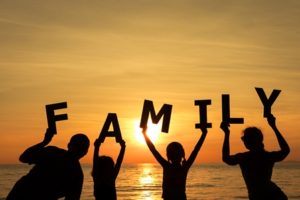
Yesterday was a beautiful crisp fall day (okay, that would be by Florida standards) and our county genealogy society’s semi-annual community help day. Ten of us volunteered to assist and we were busy for 6 hours with no break. That’s awesome! Clearly there is a growing interest in genealogy and I met several people who shared delightful stories of their family and had burning questions needing answers.
If you contemplated becoming a volunteer at a genealogical event but feared you couldn’t because you weren’t a professional genealogist you’re sadly mistaken. That old saying “Two heads are better than one” is a classic example of why you would be helpful. Here’s some tips for first time volunteers:
Be prepared as time is limited. I always arrive early so my work area is ready. My society furnishes plenty of extension cords but yours may not. I bring my research baggie (see Research Tips), laptop with power cord, Kindle, and pad of paper. Make sure an empty chair is set up next to yours for the visitor. As soon as I’ve brought my computer up, I set up tabs with various sites (Ancestry, FamilySearch, MyHeritage, Fold3, NewYorkFamilyHistory, AmericanAncestors, FindMyPast, Findagrave, BillionGraves, Google) and login so I can go from one to the other quickly. As soon as one visitor is done I just need to clear the search engine and I’m ready for the next.
Connections are everywhere! The first two people who came for assistance didn’t know each other but their families evidently did back in Martinsville, West Virginia as they lived there at the same time in the late 1800’s. Strange that they were researching the same place and both came in within minutes of each other. If you overhear similarities play matchmaker! It’s an especially good technique for newbies to meet someone researching the same region even if it isn’t the same family. Think the “N” in FAN Club.
Patience is key. Many of the folks seeking help have no understanding that genealogy is a painstaking process. All they know is what they see on TV – instant family and travel across the pond. After introductions, I immediately say, “I hope I’m able to get you started on answering your family question. In real life, genealogy isn’t done in a one hour time slot. If we aren’t able to find the information online, I’ll give you additional resources where you can follow up.” Sometimes I have to remind them again when the online clues are scant.
Don’t take their disappointment as a personal failure. Yesterday, I spoke with two community people that had been referred to me because the prior genealogist couldn’t find the information they sought. After giving them my Patience is Key disclaimer, I asked what sources the prior researcher had checked and both said, “I don’t know. Just look again because they didn’t see it online.” This may sound silly but it really isn’t as it’s coming from people whose internet experience is limited. We’ve all used the refresh button and discovered an updated page. Of course, that isn’t going to happen on Chronicling America but they wouldn’t know that. I explain that I trust the prior researcher didn’t miss the obituary or emigration information minutes ago as not all info we seek is online. I then ask the prior researcher where he/she looked. I then check other places and make a list for the person to follow up on in the future. Because she didn’t get the obituary she wanted, one person stated she was done with genealogy forever. Okay, that’s her choice as this isn’t for everyone and shouldn’t make you feel your skills are inadequate.
Skill levels will vary. Be prepared to meet people that may have had more experience than you and folks that have never done any research. After introductions and my disclaimer, I ask what information they are seeking. The advanced will have a specific question, research logs and copies of documents. Several club members told me they paled when they saw other long term club members coming in for assistance as the volunteers felt they couldn’t possibly be of help to someone who had more experience then they did. Hogwash! Genealogy is not a spectator sport. All you need to do is listen to what the person wants to discover and where they’ve looked. Sure, sometimes the answer isn’t going to be found but there’s often an overlooked place just waiting to be discovered. For the individual seeking emigration information I recommended checking newspapers for Philadelphia for the late 1700’s bringing in indentured servants from Great Britain. Will it have her several times great grandfather’s name included? Probably not but it will give her more places to check as the immigration list for that particular ship may not have been digitized yet and she very well could find her ancestor listed on the original filed in an archive somewhere. She was quite happy with being pointed in a new direction.
These five simple tips can help you help others. I find it rewarding to share the genealogy bug and learn something from every person I meet. Give it a try!

